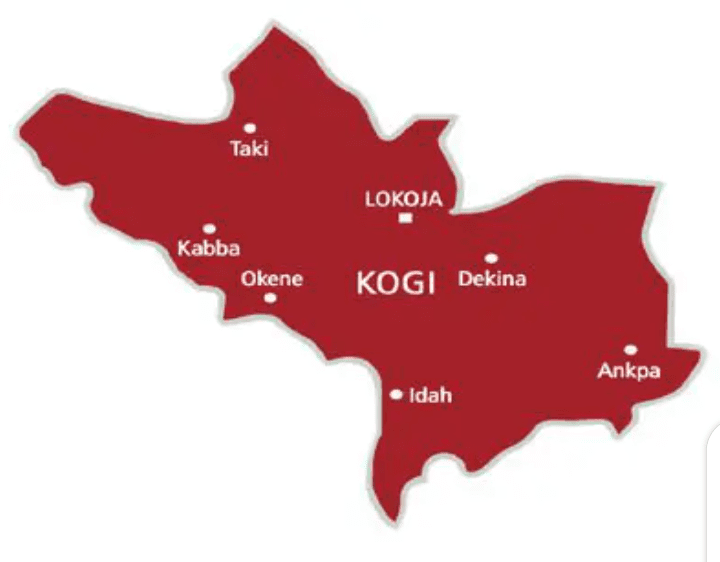Debt Crisis: Kogi, Six States Spend 190% of Revenue on Loan Repayment
Seven Nigerian States Spend 190% of Revenue on Debt Repayment in Q1 2025
By Parrot Newspaper Investigative Desk
Loan Repayment – At least seven Nigerian states are neck-deep in debt, spending nearly twice their internally generated revenue (IGR) on debt servicing in just the first quarter of 2025, a trend that starkly highlights the deepening fiscal crisis at the subnational level.
Fresh data from the Q1 2025 Budget Implementation Reports of Bayelsa, Adamawa, Benue, Niger, Kogi, Taraba, and Bauchi states reveal that these states collectively spent ₦98.36 billion repaying debts—190% of their total IGR of ₦51.91 billion. In several cases, debt obligations were more than triple the revenue generated internally.
This marks a dramatic jump from the last quarter of 2024, when these states spent ₦65.26 billion on debt service—a 51% increase in just three months, despite only modest growth in IGR.
Benue’s Debt Burden Skyrockets
Benue State recorded one of the most dramatic fiscal shifts. Its debt servicing soared from ₦1.99 billion in Q4 2024 to ₦21.40 billion in Q1 2025—a staggering 413% of its ₦5.18 billion IGR. The state had to dip into ₦16.22 billion of its ₦58.71 billion FAAC allocation to plug the deficit.
Kogi Clears ₦98.8bn Debt—but Still in the Red
Kogi State spent ₦23.88 billion servicing debts—248% of its IGR of ₦9.63 billion. In the face of this strain, the government announced it had cleared ₦98.8 billion in debt inherited from past administrations, including the ₦50 billion salary bailout granted under former Governor Idris Wada.
Commissioner for Finance, Ashiru Idris, attributed the achievement to increased revenue collection under the administration of Governor Ahmed Usman Ododo. But current figures still show that Kogi’s IGR lags far behind its debt obligations.
Bayelsa, Adamawa, and Bauchi: Revenue No Match for Debt
Bayelsa’s debt service of ₦13.55 billion slightly exceeded its IGR of ₦12.55 billion, continuing a trend of IGR shortfalls. Despite healthy FAAC inflows of ₦120.55 billion, debt servicing accounted for 6.1% of Bayelsa’s total Q1 spending of ₦221.54 billion.
In Adamawa, the IGR of ₦4.07 billion couldn’t match debt obligations of ₦8.42 billion, while Bauchi spent ₦11.20 billion—225% of its ₦4.97 billion IGR—on debt service.
Taraba, Niger Struggle to Bridge Fiscal Gaps
Taraba State generated just ₦3.38 billion internally but spent ₦7.83 billion on debt repayment—232% of IGR—while relying on ₦4.45 billion from FAAC to close the gap.
In Niger State, debt service slightly outpaced IGR—₦12.43 billion versus ₦12.13 billion—but required an additional ₦296 million from federal allocation to break even.
The Bigger Picture: Development Suffers as Debt Grows
Across the seven states, the gap between earnings and obligations is widening. While their combined IGR grew by ₦7.87 billion between Q4 2024 and Q1 2025, debt service costs ballooned by ₦33.1 billion. Even as FAAC allocations increased to ₦419.86 billion, much of it was swallowed by debt servicing—₦46.8 billion or 11.15% of the total.
In many cases, debt service consumed between 6% and 32% of total government spending, leaving less room for education, healthcare, infrastructure, and salaries.
The growing reliance on FAAC to repay loans raises serious questions about sustainability. These states are caught in a debt trap, where servicing obligations dominate budgets, leaving little for capital development or economic growth.
Unless drastic fiscal reforms are implemented, many subnational governments may find themselves locked in a perpetual cycle of borrowing to repay debts—mortgaging the future to survive the present.
Loan Repayment
—
ISSN 3092-8435 | Parrot Newspaper
For deeper investigations and continuous coverage, visit parrotnewspaper.com
Tagline: News That Talks to You


